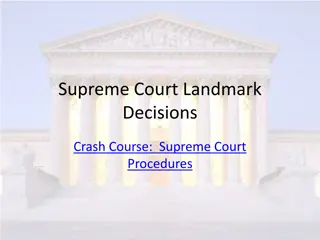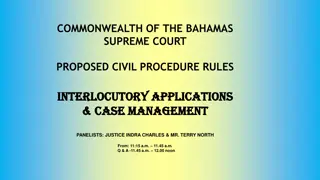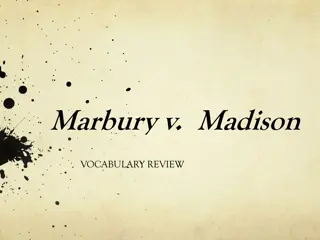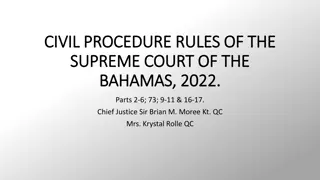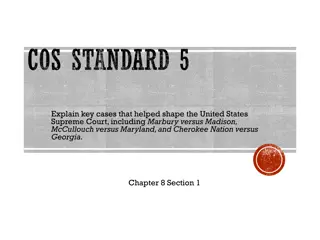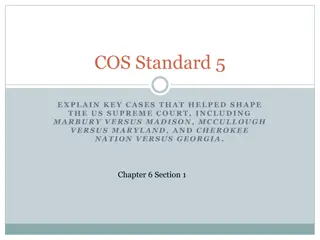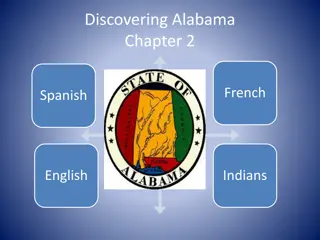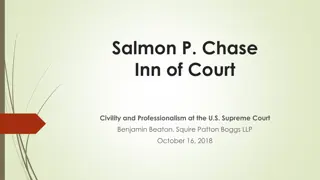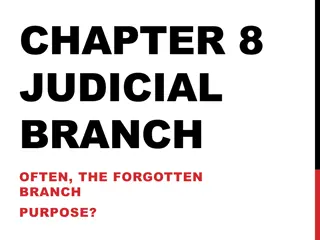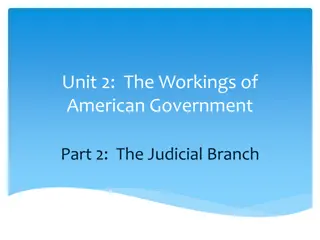The Scottsboro Boys and Powell v. Alabama: A Landmark Supreme Court Case
Nine African-American teenagers known as the Scottsboro Boys were falsely accused of sexually assaulting two white women on a freight train in 1931. Despite lack of evidence, they were swiftly convicted, leading to a series of trials and a landmark U.S. Supreme Court decision in Powell v. Alabama. The case highlighted racial injustice in the legal system and sparked national attention and outrage.
Download Presentation

Please find below an Image/Link to download the presentation.
The content on the website is provided AS IS for your information and personal use only. It may not be sold, licensed, or shared on other websites without obtaining consent from the author. Download presentation by click this link. If you encounter any issues during the download, it is possible that the publisher has removed the file from their server.
E N D
Presentation Transcript
The Scottsboro Boys and the U.S. Supreme Court decision of Powell v. Alabama (1932) Gregory L. Riley, Sr. Assistant Professor of Criminal Justice Norwalk Community College Norwalk, CT
Nine African-American teenager, Haywood Patterson (age 18), Olen Montgomery (17), Clarence Norris (19), Willie Roberson (16), brothers Andy Wright (19) and Roy Wright (13), Ozzie Powell (16), Eugene Williams (14), and Charley Weems (19) leaving home for the first time in search for work and better opportunities, boarded a freight train traveling between Chattanooga and Memphis, Tennessee. Scottsboro Boys Timeline
On the same train were about a dozen white boys, and two white women. Some of the white boys saw the black boys on the freight train. The white boys declared that this was a white man s train , and a fight ensued between the white and black boys. The white boys lost the fight and were forced off the freight train. One of the white boys who felt embarrassment over the issue made a police report to the sheriff. The freight train was stopped, and the black boys were arrested. The white women who were on the freight train accused the black boys of sexual assault to avoid being arrested having been faced with charges of prostitution. The boys were arrested on March 25 and indicted on March 26, 1931.
The Scottsboro Boys
Two women, Victoria Price and Ruby Bates, fearful of being prosecuted for their sexual activity aboard a freight train, agreed to testify that nine black youths had sexually assaulted them on March 25, 1931. The Scottsboro Women The ages of the boys were 12 to 19 at the time of their arrest.
Lynch Mob Begins to Form Once word got out around town that nine black boys had been arrested for sexually assaulting two white women, a lynch mob began to form. The lynch mob demanded that the sheriff release the boys to them. The sheriff held off the lynch mob and communicated to the governor who sent the Alabama Army National Guard for protection from the very large lynch mob.
Trials of all nine defendants took place within two days with no evidence of a sexual assault produced against any of the Scottsboro boys. They were told that they could not hire lawyers or speak to their families. One of the court appointed attorneys which they were given just before trial was not versed in criminal court proceedings, he was a real estate lawyer. The other attorney was from Tennessee, and he admitted that he had not even studied the case and had no knowledge of Alabama law. They were granted 25 minutes to meet with the defendants before the trial began that day. All the defendants were found guilty on April 9, after being arrested on March 25. Roy Wright, 13 years old, case was declared a mistrial because of his age. The eight others were sentenced to death by the electric chair on July 10, but they appealed their sentence to Alabama Supreme Court which upheld their guilty sentence. They then appealed to the U.S. Supreme Court that decision from the Alabama Supreme Court. The Trials
On November 7, 1932, the U.S. Supreme Court ruled in a 7-2 majority decision in the case of (Ozzie) Powell v. Alabama. It overturned the conviction the Scottsboro Boys. Based upon the 6th Amendment for the lack of proper legal representation. Likewise, the Court held that the 14th Amendment extended to the states the due process clause of the right to counsel. This required the effective assistance of legal counsel in capital case. Since the 14th Amendment applied to the all states, the Alabama conviction could not stand. The Court sent the case back to Alabama for all new trials for the defendants. Powell v. Alabama 287 U.S. 45 (1932)
Due process is the principle that a person has a legal right to receive notice and be heard in an orderly and fair proceeding to protect his or her rights. Definition of Due Process and Equal Protection Equal protection requires the all states must treat everyone equally under the law. It allows the judiciary to enforce this principle.
Retrial of All Defendants In Alabama Courts During the trials, two doctors testified that there was no medical evidence of a sexual assault of the women. Willie Roberson at the time of the arrest had the medical conditions of syphilis and gonorrhea. It would have been contrary to reason for him to have sexually assaulted the women as described on date based upon the arrest reports to the police officers. Ruby Bates admitted that there was no sexual assault committed on her or Victoria Price by the defendants. She stated that the police had made her lie.
Scottsboro Boys Life Stories July 1937 Jan. 1944 June 1946 Roy Wright, Eugene William, Olen Montgomery, Willie Roberson charges were dropped in July 1937. Clarence Norris was paroled in January 1944, after a receiving a death sentence. It was reduced to Life in Prison by the Governor Graves. He was pardoned by Governor George Wallace in 1976. Ozzie Powell was paroled in June 1946, in a plea deal for an assault on a deputy sheriff. Charlie Weems was paroled in September 1943, after a receiving sentence of 105 years in July 1937. Andy Wright was paroled in January 1944, after receiving a sentence 99 years in July 1937. Haywood Patterson escaped from prison in July 1948, after a sentence of 75 years in January 1936. Sep. 1943 Jan. 1944 July 1948
Norris v. Alabama (1935) 294 U.S. 587 One other important U.S. Supreme Court case came from the Scottsboro Boys trial. (Clarence) Norris v. Alabama (1935), the U.S. Supreme Court unanimously overturned another conviction based upon the issue that African Americans had been systematically excluded from the jury pool. This is a violation of the 6th Amendment as well as the 14th Amendment right to equal protection under the law.
April 19, 2013 Alabama Governor Robert Bentley signs legislation that officially pardons and exonerates all nine Scottsboro Boys.
Books authored by Clarence Norris and Haywood Patterson as Scottsboro Boys








